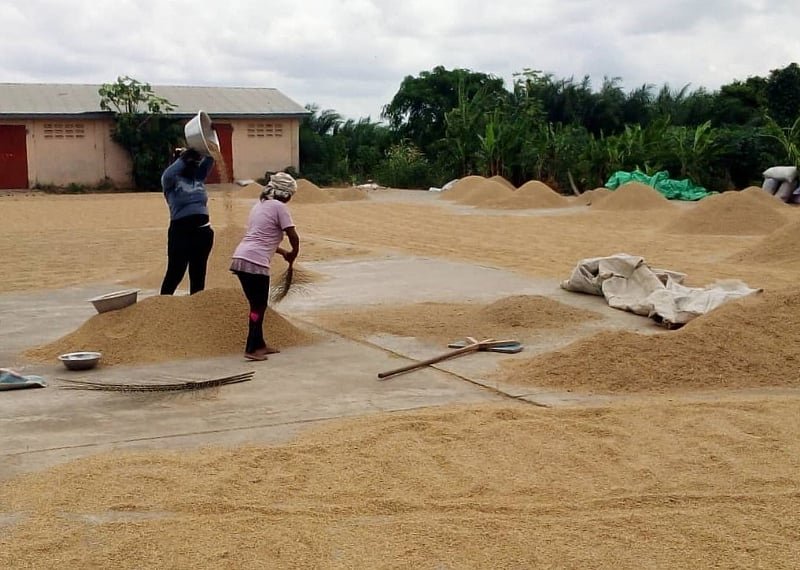Rice farmers in Adzoatsi, situated in the Ketu North Municipality of the Volta Region, are grappling with crippling financial challenges due to exorbitant interest rates on loans.
Despite producing high-quality rice, which they believe could rival imported varieties, these farmers are finding it increasingly difficult to sustain their operations.
The farmers argue that the rice they cultivate is not only of superior quality but could also play a significant role in reducing Ghana’s dependence on imported rice. However, they are hindered by a lack of market access and support from the government and financial institutions.
During a visit by the Ghana News Agency to their farms, the farmers expressed frustration over the heavy financial burden imposed by local moneylenders. These lenders charge interest rates as high as 50%, making it nearly impossible for the farmers to repay loans and reinvest in their farms.
“For every GHC 1,000 we borrow, we are expected to repay GHC 1,500 after four months, which is after the harvest,” explained Mr. Wonder Nutekpor, the Secretary of Section 1, CDE Water Users Association. “Even if you take the loan just a month before the harvest, the 50% interest rate still applies. It’s killing us.”
The farmers also highlighted the lack of proper infrastructure, such as drying facilities, which exacerbates their challenges. Forced to dry their rice in open areas, they often suffer significant losses due to flooding from rain or water from the nearby Kplikpa Dam.
“We don’t have proper places to dry our rice. We end up using areas where the rain and dam water wash away our hard work,” lamented Madam Mary Avuworda, another farmer. “After all that labour, if you’re lucky to get something, it all goes to repay loans.”
Despite these obstacles, the farmers remain confident in the quality and quantity of their rice, which they produce every four months. They believe their output, combined with rice from other regions, could feed the entire nation and even create a surplus for export. However, without immediate intervention, their businesses are at risk.
The farmers are calling on the government, NGOs, and other stakeholders to address the pressing issues they face, including the poor state of access roads, inadequate drainage systems, and the lack of affordable financing options.
They emphasize that improving these conditions would not only enhance their productivity but also make their rice more competitive in the market, reducing Ghana’s reliance on imports and boosting the local economy.

